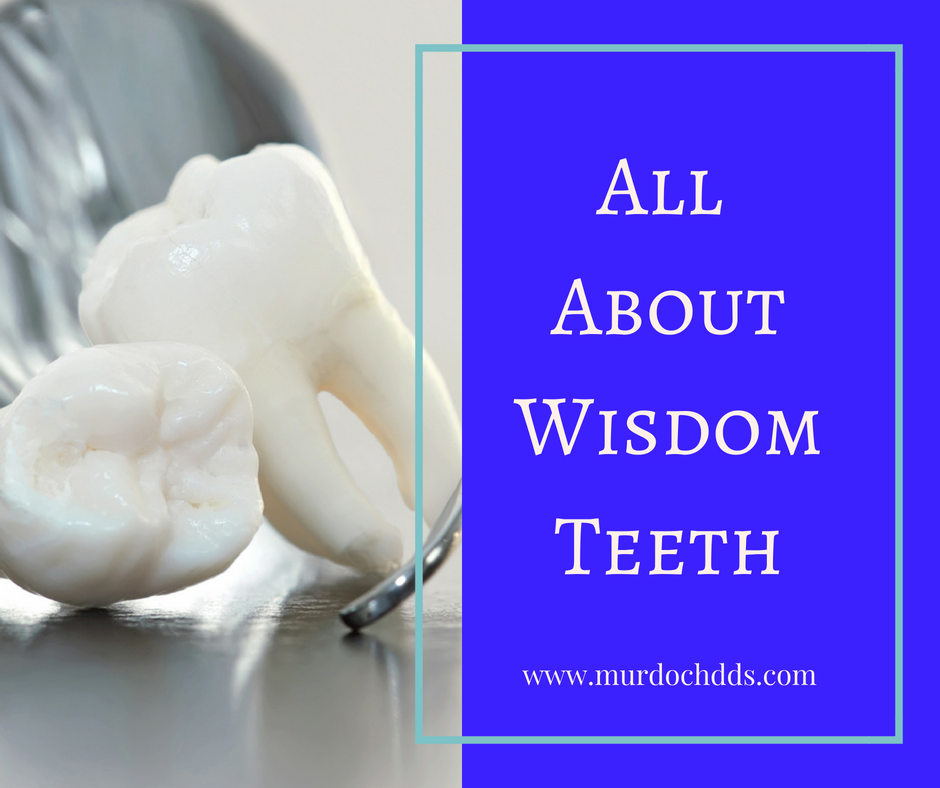All About Wisdom Teeth

Despite their flattering name, wisdom teeth have very little to do with intelligence, maturity, or sagacity. The third molars, cheekily coined “wisdom teeth” sometime in the 17th century, were given their title simply because they show up late to the party—somewhere between the ages of 17 and 25 for most folks. In fact, their late appearance can cause quite the upset in a mouth full of settled adult teeth. A better name might have been “pushy” teeth, “hide-and-go-seek” teeth or “no vacancy, no problem” teeth.
However, their reputation for crowding the place and causing discomfort and pain is really a side effect of modern conveniences. Most theories concerning wisdom teeth speak to their timely arrival to take the place of teeth that had been worn-down or fallen out due to a diet rich in bones, seeds, nuts, and gristle, and a lack of dental hygiene. For our ancestors, they were a life-saver, literally. Without them, they would not be able to chew very much once their adult teeth had worn down or fallen out and their life span would have shortened dramatically.
As we developed a penchant for dental hygiene, and modern dentistry practices, we began to lose less teeth as we grew into adulthood. Gradually, the survival need for these “replacement teeth” declined and, instead, we found ourselves with a new problem—what to do when they pushed their way into several variations of uncomfortable positions in our mouths. Not everyone experiences this problem, of course. For some, the arrival of wisdom teeth goes largely unnoticed. For many, however, the resulting overcrowding can cause issues with bite alignment, increased tooth decay, pain and discomfort, and even nerve or bone damage. If there’s no room for the arriving tooth, it can become impacted during eruption.
Your dentist will be able to determine, through x-rays and oral examination, whether or not your wisdom teeth will need to be removed. If this is the case, worry not. Wisdom tooth extraction may not be a fun way to spend the day, but it’s not as bad as many people fear. You will likely experience tenderness and some pain after the procedure, but should be back to normal within a week. Sticking to soft foods, using a cold compress, and getting plenty of rest will make the recovery process smoother and swifter.
To learn more, visit https://murdochdds.com/.
Dr. Richard Murdoch, DDS, helps to keep his dental patients in the Centennial and Glendale neighborhoods of Denver, Colorado healthy and happy!
May 12, 2018
